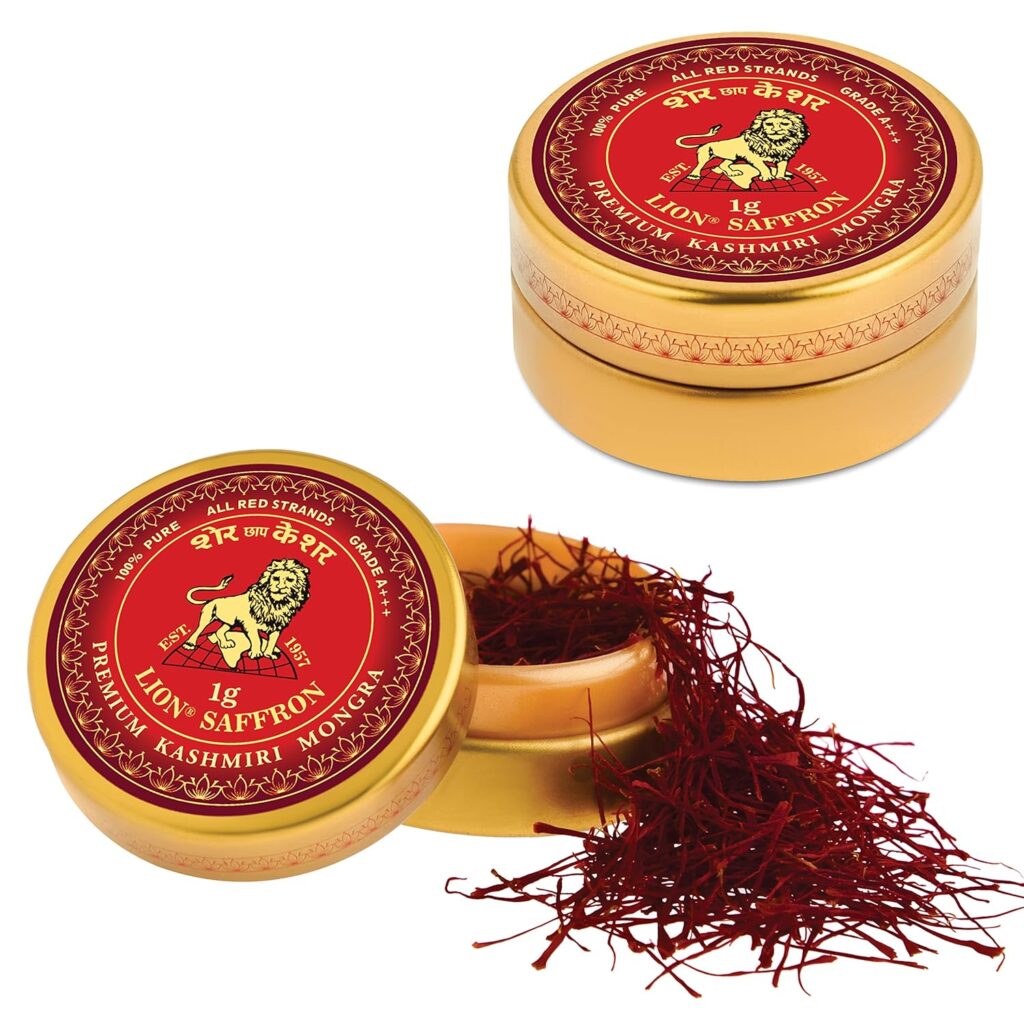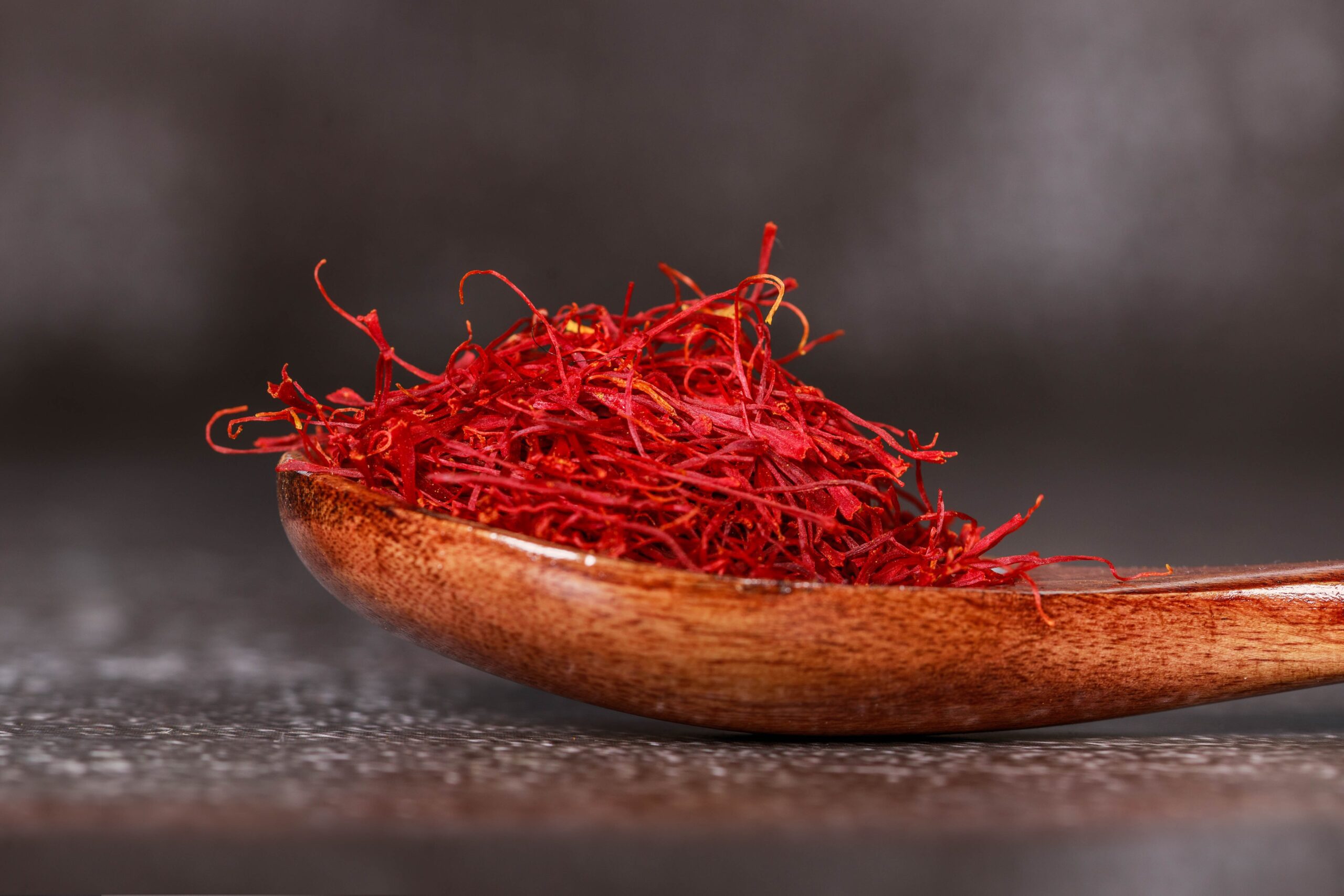Saffron for ADHD
One spice everyone with ADHD should know about when considering a more natural approach to managing symptoms of ADHD and RSD, and minimizing risks associated with prescription drugs for the condition, is Saffron.
What Is Saffron?
Saffron is a flowering plant that is native to the Mediterranean, and it is best known for its bright orange–red hue. The plant is used for its culinary, medicinal and dyeing purposes. The active compounds in saffron are called crocin, safranal and picrocrocin and these compounds are thought to have a variety of therapeutic effects.
Kashmiri saffron, known as Crocus Sativus, is harvested only once annually, typically falling between October 20 and November 15. Renowned for its exceptional aroma, vibrant color, and medicinal properties, this saffron variety is widely regarded as the finest globally. Notably, a significant portion of the world’s saffron production, approximately 88 percent, is attributed to Iran.
Kashmiri saffron is esteemed for its unique attributes, and its cultivation in the Kashmir Valley is characterized by specific weather conditions and soil quality. The saffron produced in this region is highly prized for its intense flavor, deep red color, and potential health benefits, making it a sought-after spice in culinary and medicinal applications. Iran’s dominant role in global saffron production is attributed to favorable growing conditions and a long history of cultivating this valuable spice.
Here's a Few To Get You Started


AllNaturWell.com is a participant in the Amazon Services LLC Associates Program. Read Our Full Affiliate Disclaimer Here
Saffron for ADHD
Saffron is an ancient spice that has been used in traditional medicines for centuries. It has been used to treat a variety of ailments, including depression, anxiety and Attention Deficit Hyperactivity Disorder (ADHD). In recent years, numerous studies have been conducted on the effects of saffron on ADHD, and the results have been promising.
When it comes to ADHD, saffron has been found to have a positive effect on the body‘s central nervous system and the brain. Studies have found that saffron increases levels of dopamine, serotonin and norepinephrine in the brain. These neurotransmitters are responsible for regulating mood, attention and behavior.
By increasing levels of these neurotransmitters, saffron can help to improve focus and concentration, reduce impulsivity and reduce hyperactivity. Other studies have found that saffron helps to improve memory and learning. This is likely due to the fact that saffron helps to increase blood flow to the brain. This increased blood flow can help to improve overall brain function, and can even help to reduce the symptoms of ADHD.
Studies have also shown that saffron can help to improve overall sleep quality, as well as reduce insomnia and other sleep disorders. This is likely due to the fact that saffron helps to reduce stress and anxiety, which can often be the cause of sleep disturbances.
Finally, saffron can help to reduce anxiety and depression. Studies have found that saffron has an antidepressant effect, and can help to reduce the symptoms of anxiety and depression. This is likely due to the fact that saffron helps to increase levels of serotonin and dopamine in the brain, which can help to improve overall mood.
A Few Studies You Might Be Interested In
Overall, saffron has been found to have a variety of therapeutic effects on the body, and has been found to be particularly beneficial for those with ADHD.
By increasing levels of neurotransmitters, improving memory and learning, improving sleep quality and reducing symptoms of anxiety and depression, saffron can be a powerful ally in treating ADHD.
Saffron contains safranal and alfa crocin which is effective in controlling depression. Meaning it increases these two chemicals in the brain, which helps combat ADHD symptoms. Saffron also increases GABA in the brain. GABA promotes relaxation and has anti-anxiety effects.
The plant saffron is called Crocus sativus. Saffron flavor, culinary coloring and medicine are all made from the dried, thread-like components of the flower known as stigmas. Saffron is the stigma of the autumn blooming crocus flower. The flower is purple, the stigma is red. Each crocus bulb produces one flower and each flower produces exactly 3 stigmas.
Saffron contains compounds that have been shown to act as antioxidants, kill cancer cells, and reduce swelling. One pound of saffron spice may require up to 75,000 saffron blooms. Iran is the main country where saffron is grown and picked strictly by hand. It’s one of the priciest spices in the entire world.
How to use saffron in daily diet?
Saffron can be incorporated into your daily diet in various ways. You can add a few saffron threads to warm water or milk and let them soak for a while, creating saffron-infused liquid. This can be added to teas, coffees or used in cooking dishes like rice, soups or desserts. Saffron’s unique flavor and color make it a versatile spice in both sweet and savory dishes.
Saffron for ADHD
Saffron has been used as a traditional remedy for ADHD for centuries. Studies have shown that taking a 30 mg dose of saffron extract daily for 8 weeks can improve attention and hyperactivity in children with ADHD. Additionally, saffron may be beneficial in reducing anxiety and improving mood in children with ADHD.
To use saffron for treating ADHD, it is important to consult a doctor before starting any supplement regimen. Many health stores sell saffron supplements in capsule or extract form. The recommended dose for ADHD is generally 30 mg per day for 8 weeks. Additionally, it is important to ensure that the supplement is of high quality and is free from any contaminants.
Adding the strands of saffron in recipes is another great way to begin introducing this spice into your daily routine. Besides steeping into teas, this spice adds additional flavor to any number of dishes. You can find a few of our favorite recipes using Saffron here.
What happens if we eat saffron every day?
Consuming saffron daily in moderation is generally considered safe and may offer health benefits. Saffron contains compounds with antioxidant properties that may contribute to overall well-being. However, it’s essential to avoid excessive intake, as large amounts could have adverse effects.
How many strands of saffron should I eat daily?
There is no fixed quantity that applies to everyone, as individual tolerance may vary. A common recommendation is about 15-20 strands per day, divided into two or three servings. This amount is considered safe and allows you to enjoy the flavor and potential health benefits of saffron without overconsumption.
When Selecting Saffron
Saffron is an expensive and highly sought–after spice, so it is important to first verify that it is real. To ensure you are getting real saffron and not a fake, there are several observations to make while purchasing this spice. First, look for saffron threads that are a deep red–orange color and are formed in strands with diffuse ends.
Additionally, real saffron should be very delicate and break easily when rubbed between your fingers.The saffron should also have a bitter, astringent taste. If it tastes sweet, it’s probably not real. Real saffron will have the distinct aroma of hay and honey and no fragrance at all would mean its not real saffron. When real saffron is dipped in water and then removed, it will retain its red color. If it does not, then its fake. Lastly, if the saffron is dipped into a mixture of baking soda and water, the water should turn yellow. If it turns shades of red, its not real saffron.
Is it better to take saffron in the morning or at night?
There isn’t a strict rule regarding the time of day to consume saffron. It can be taken in the morning or at night based on personal preference. Some people prefer adding saffron to morning beverages like tea or milk for a refreshing start, while others may include it in dinner dishes. The key is to incorporate saffron into your routine in a way that suits your lifestyle.
It’s important to note that these responses are based on general information, and individual dietary needs or health conditions may warrant consultation with a healthcare professional for personalized advice.
Herbal and spice remedies have been used for centuries to treat various ailments, and their effects on the brain and body are complex and far-reaching. For some people with ADHD, they can be a source of natural relief. While herbs and spices have been linked to improved cognitive functioning, reduced anxiety and improved sleep in some individuals with ADHD, they can also cause negative side effects such as increased agitation and hyperactivity. Therefore, it is important to understand the potential effects, both positive and negative, that herbs and spices can have on women with ADHD before using them as part of a treatment plan. Always consult your health care professionals before adding any herb or spice to your ADHD treatment routine.
Disclaimer: The information and/or products mentioned in this article are provided as information resources only and are not to be used or relied on to diagnose, treat, cure or prevent any disease. The statements made in this article have not been evaluated by the Food and Drug Administration. Any products mentioned are not intended to diagnose, treat, cure, or prevent any disease, but rather to be considered as an informational resource only to encourage critical thinking and personal research. The information in this article is intended for educational purposes only. The information is not intended to replace medical advice offered by licensed medical physicians. Please consult your doctor or health care practitioner for any and all medical advice.
and don't forget to sign up for our weekly newsletter. it's free!

52 Weeks, 52 Topics! Get Our Latest ‘Stay Well’ Newsletter Every Monday And Start Your Week Off AllNaturWell. A New Tip, A New Study Revealed, A New Product Reviewed. Get It Right To Your Inbox Weekly. No Need To Wait. It’s Free!




